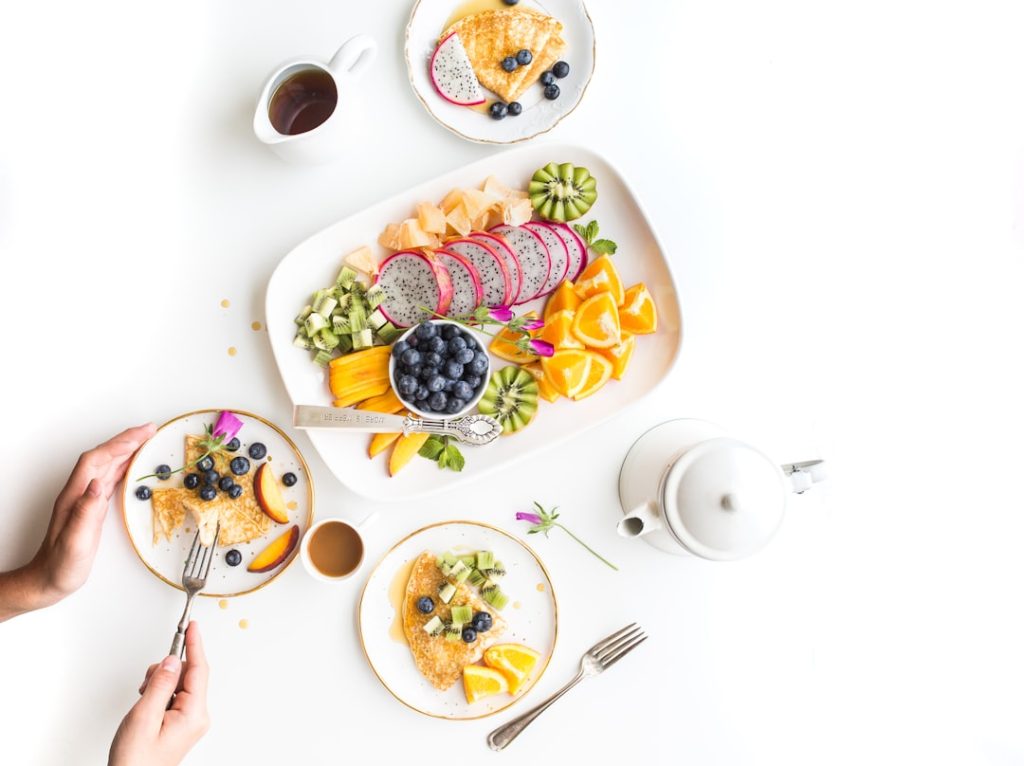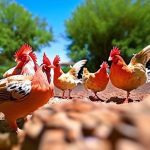Chickens are not just pets, but also a source of food for many people. Whether you raise chickens for their eggs or meat, it is important to understand the significance of proper nutrition for their health and well-being. Just like humans, chickens require a balanced diet to thrive and reach their full potential. In this blog post, we will discuss the basic nutritional requirements for chickens and how to ensure they are getting a well-rounded diet.
Key Takeaways
- Proper nutrition is crucial for the health and well-being of chickens.
- Chickens require a balanced diet that includes protein, vitamins, minerals, and water.
- Protein is essential for muscle development and egg production in chickens.
- Vitamins and minerals are necessary for strong bones, healthy feathers, and overall health.
- Maintaining a clean and comfortable chicken coop is important for the health and happiness of chickens.
Basic Nutritional Requirements for Chickens
Chickens require a diet that is high in protein, vitamins, and minerals. Protein is essential for growth and development, as well as egg production. Good sources of protein include insects, meat, and soybean meal. It is important to provide chickens with access to protein sources at all times.
In addition to protein, chickens also need carbohydrates and fats for energy. Grains such as corn, wheat, and barley are good sources of carbohydrates. Fats can be found in vegetable oils and animal fats. A balanced diet should consist of grains, vegetables, and protein sources such as insects or meat.
Feeding Chickens a Balanced Diet
To ensure that your chickens are getting all the nutrients they need, it is important to provide a variety of foods. Commercial chicken feed is a good option as it is formulated to meet their nutritional needs. However, supplementing their diet with fresh foods can also be beneficial.
Fresh fruits and vegetables are excellent sources of vitamins and minerals. You can offer them scraps from your kitchen or grow your own garden specifically for your chickens. Just make sure to avoid feeding them too many treats or foods that are high in sugar or salt.
The Role of Protein in Chicken Diets
Protein is an essential component of a chicken’s diet. It is necessary for growth and development, as well as egg production. Without adequate protein, chickens may experience stunted growth, decreased egg production, and overall poor health.
Good sources of protein for chickens include insects, meat, and soybean meal. Insects such as mealworms, crickets, and black soldier fly larvae are highly nutritious and can be easily incorporated into their diet. Meat scraps from your kitchen can also be fed to chickens, but make sure to avoid giving them any cooked bones or processed meats.
Soybean meal is a common ingredient in commercial chicken feed and is an excellent source of plant-based protein. It is important to provide chickens with access to protein sources at all times to ensure they are getting the nutrients they need.
The Importance of Vitamins and Minerals for Chickens
Vitamins and minerals are necessary for overall health and disease prevention in chickens. They play a crucial role in maintaining a strong immune system, promoting healthy bone development, and supporting proper organ function.
Calcium is especially important for egg-laying hens as it is needed for the formation of strong eggshells. Without adequate calcium, hens may lay eggs with thin or weak shells, which can lead to egg breakage or other complications.
Fresh fruits and vegetables are good sources of vitamins and minerals for chickens. Leafy greens such as kale, spinach, and lettuce are rich in vitamins A and K. Fruits like berries, melons, and citrus fruits provide essential vitamins such as vitamin C. Offering a variety of fresh foods will help ensure that your chickens are getting the necessary vitamins and minerals they need to thrive.
How to Ensure Adequate Water Supply for Chickens

Water is an essential component of a chicken’s diet. Chickens need access to clean water at all times to stay hydrated and maintain proper bodily functions. Dehydration can lead to poor egg production, decreased appetite, and overall poor health.
When providing water for your chickens, it is important to use a clean container that is large enough for all chickens to drink from. Make sure to clean the water container regularly to prevent the growth of bacteria or algae. In cold weather, use a heated waterer to prevent freezing and ensure that your chickens have access to water at all times.
Understanding the Role of Grit in Chicken Diets
Grit is small stones or sand that chickens need to grind their food in their gizzard. The gizzard is a muscular organ in a chicken’s digestive system that helps break down food into smaller particles for easier digestion.
Chickens should have access to grit at all times, as it aids in the digestion of their food. Commercial chicken feed usually contains grit, but it can also be provided separately. You can offer them crushed oyster shells or granite grit, which can be purchased at most feed stores.
The Benefits of Offering Treats to Chickens
Treats can be a fun way to bond with your chickens and provide them with extra nutrients. However, it is important to offer treats in moderation and choose healthy options.
Good treats for chickens include fruits, vegetables, and mealworms. Fruits such as berries, melons, and apples are not only tasty but also provide essential vitamins and minerals. Vegetables like carrots, peas, and broccoli are also nutritious options. Mealworms are high in protein and can be a great treat for chickens.
Avoid giving them too many treats or foods that are high in sugar or salt. Overindulging in treats can lead to obesity and other health issues in chickens. Treats should only make up a small portion of their overall diet.
Maintaining a Clean and Comfortable Chicken Coop
A clean and comfortable coop is essential for the health and well-being of your chickens. A dirty coop can lead to the growth of bacteria and parasites, which can cause diseases and other health problems.
Clean the coop regularly by removing soiled bedding and replacing it with fresh bedding. Make sure to clean the nesting boxes and roosting bars as well. Regularly inspect the coop for any signs of damage or wear and repair as needed.
Proper ventilation is also important to maintain a comfortable environment for your chickens. Good airflow helps remove moisture and ammonia from the coop, which can lead to respiratory issues. Make sure to provide adequate ventilation while still protecting your chickens from drafts.
Temperature control is another important aspect of maintaining a comfortable coop. Chickens are sensitive to extreme temperatures, so it is important to provide them with a well-insulated coop that can keep them warm in the winter and cool in the summer. Consider using insulation, fans, or heaters depending on your climate.
Keeping Your Chickens Healthy and Happy with Proper Nutrition and Care
Proper nutrition is essential for the health and well-being of your chickens. By providing a balanced diet that includes protein, vitamins, and minerals, you can ensure that your chickens are getting all the nutrients they need to thrive.
In addition to a balanced diet, it is important to provide clean water, access to grit, and occasional treats. Maintaining a clean and comfortable coop is also crucial for their health and well-being.
With proper care, your chickens will be healthy and happy for years to come. Whether you raise them for their eggs or meat, they will reward you with delicious and nutritious food. So take the time to understand their nutritional needs and provide them with the best care possible.
If you’re looking for more information on how to keep your chickens healthy, you might find this article on Poultry Wizard helpful. It discusses the importance of providing the right nutrition to your chickens and offers tips on what to give them to ensure their well-being. From the size of the chicken coop door to the design of the nest box, every aspect plays a role in maintaining their health. To learn more about creating a healthy environment for your feathered friends, check out this article: https://poultrywizard.com/keeping-chickens/chicken-coop-10/.
FAQs
What should I feed my chickens to keep them healthy?
Chickens require a balanced diet that includes protein, carbohydrates, vitamins, and minerals. A diet consisting of commercial chicken feed, fresh fruits and vegetables, and occasional treats like mealworms or scratch grains can help keep chickens healthy.
Can I give my chickens table scraps?
Yes, you can give your chickens table scraps, but it’s important to avoid giving them anything that is spoiled, moldy, or salty. Also, avoid giving them anything that contains caffeine, chocolate, or alcohol.
Do chickens need access to clean water?
Yes, chickens need access to clean water at all times. Water is essential for digestion, egg production, and overall health. Make sure to change their water daily and keep their waterer clean.
What kind of housing do chickens need?
Chickens need a safe and secure coop to protect them from predators and the elements. The coop should be well-ventilated, dry, and clean. It should also have roosting bars and nesting boxes for the chickens to sleep and lay eggs.
How often should I clean my chicken coop?
You should clean your chicken coop at least once a week. Remove any soiled bedding, droppings, and debris. Replace the bedding with fresh straw or wood shavings. Deep clean the coop at least once a month by scrubbing it with a mild detergent and disinfectant.
Can I give my chickens medication?
Yes, you can give your chickens medication, but it’s important to consult with a veterinarian first. Only use medication that is approved for chickens and follow the dosage instructions carefully. Avoid giving them medication that is meant for other animals or humans.
Meet Walter, the feathered-friend fanatic of Florida! Nestled in the sunshine state, Walter struts through life with his feathered companions, clucking his way to happiness. With a coop that’s fancier than a five-star hotel, he’s the Don Juan of the chicken world. When he’s not teaching his hens to do the cha-cha, you’ll find him in a heated debate with his prized rooster, Sir Clucks-a-Lot. Walter’s poultry passion is no yolk; he’s the sunny-side-up guy you never knew you needed in your flock of friends!







